Inner Child Healing for First Responders and Veterans
Inner child healing offers transformative benefits for first responders and veterans, helping them navigate the emotional scars of their demanding...
5 min read
 Chris Smetana, AS, FP-C, CCP-C, NRP | Founder/President
:
Mar 19, 2025
Chris Smetana, AS, FP-C, CCP-C, NRP | Founder/President
:
Mar 19, 2025
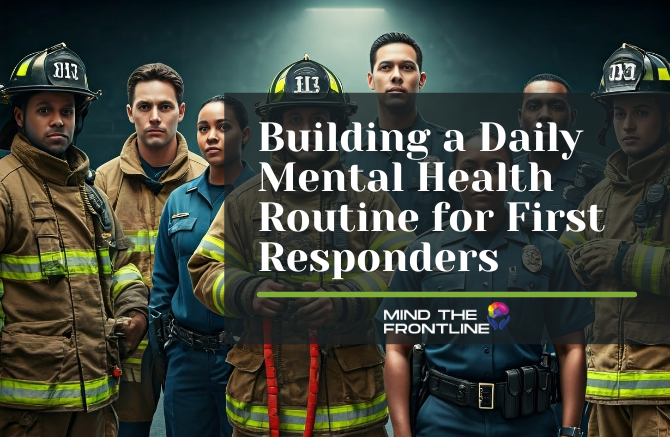
First responders face unique mental health challenges due to the nature of their jobs. Building a daily mental health routine can be a powerful tool to maintain and improve their well-being.
First responders, including police officers, firefighters, and emergency medical personnel, face a variety of mental health stressors unique to their roles. These stressors can include exposure to traumatic events, high-pressure situations, and the physical demands of their job. Such experiences can lead to chronic stress, anxiety, depression, and even PTSD.
Veterans, similarly, may deal with memories of combat, loss of comrades, and the transition back to civilian life, which can be equally challenging. Recognizing these stressors is the first step in addressing the mental health needs of these individuals.

A daily mental health routine can provide essential structure and stability, which are crucial for effectively managing stress and maintaining overall mental well-being. This routine acts as a foundation that helps individuals navigate the complexities of their daily lives, offering a sense of predictability and control amidst the chaos. For first responders and veterans, who often operate in high-stress environments characterized by unpredictability and intense pressure, having a consistent routine can significantly help mitigate the impact of these challenging conditions. By establishing a reliable framework for their day-to-day activities, they can better manage the emotional and psychological toll of their demanding roles.
Moreover, a well-established routine can enhance resilience, allowing individuals to bounce back more quickly from setbacks and challenges. It can improve emotional regulation by providing regular opportunities to process emotions and reduce the likelihood of emotional overwhelm. Additionally, such a routine promotes overall mental health by incorporating activities that support physical, emotional, and social well-being. It acts as a proactive measure to keep mental health in check, serving as a preventative strategy to address potential issues before they escalate, rather than waiting for stress to reach a critical level where intervention becomes more complex and difficult. By integrating various elements like exercise, mindfulness, and social interaction, a daily routine can create a balanced approach to mental health care, fostering a more resilient and healthier mindset.
-Mar-18-2025-06-58-16-8569-PM.png?width=401&height=262&name=Blog%20Section%20Pictures%20(1)-Mar-18-2025-06-58-16-8569-PM.png)
An effective mental health routine should encompass a diverse array of components that are specifically tailored to meet the unique needs and preferences of each individual. This personalized approach ensures that the routine is not only effective but also sustainable over the long term. Key elements of such a routine can include engaging in regular physical activity, practicing mindfulness techniques, ensuring adequate sleep, maintaining proper nutrition, and fostering regular social interactions.
Physical exercise, whether it be a brisk walk, a session at the gym, or a yoga class, is widely recognized for its ability to reduce stress levels and enhance mood by releasing endorphins, the body's natural mood elevators. It also contributes to improved physical health, which is intrinsically linked to mental well-being. Mindfulness practices, such as meditation, deep-breathing exercises, or even mindful journaling, can play a crucial role in helping individuals stay grounded, manage anxiety, and cultivate a sense of inner peace amidst the chaos of daily life.
Ensuring sufficient sleep is another critical component, as it allows the body and mind to rest and rejuvenate, thereby supporting overall health and cognitive function. A balanced diet, rich in essential nutrients, fuels the body and brain, promoting optimal functioning and resilience against stress. Meanwhile, regular social interactions, whether through family gatherings, community events, or support groups, provide vital emotional support, foster a sense of belonging, and help reduce feelings of isolation and loneliness.
By integrating these elements into a daily routine, individuals can create a holistic approach to mental health care that not only addresses immediate needs but also builds a foundation for long-term resilience and well-being.
-Mar-18-2025-06-58-16-8903-PM.png?width=401&height=262&name=Blog%20Section%20Pictures%20(3)-Mar-18-2025-06-58-16-8903-PM.png)
Start by setting realistic and achievable goals that align with your current lifestyle and commitments. It's important to assess your daily schedule and identify areas where you can make small, manageable changes without overwhelming yourself. Begin with simple adjustments, such as dedicating just ten minutes a day to a new activity, and gradually build up to a more comprehensive routine that encompasses various aspects of mental health care. Consistency is key to forming lasting habits, so strive to adhere to your routine even on days when motivation wanes. This persistence will help reinforce the positive changes you are making and ensure they become a natural part of your daily life.
Incorporate activities that you genuinely enjoy and that provide relaxation and stress relief, as these will be more sustainable in the long run. Whether it's a morning jog that invigorates you for the day ahead, an evening meditation session that helps you unwind, or a hobby that brings you joy and fulfillment, ensure that your routine is something you look forward to and that enriches your life. Additionally, don't hesitate to seek professional help if needed; therapy and counseling can be beneficial components of your routine, offering guidance and support as you navigate your mental health journey. Professional assistance can provide valuable insights and strategies tailored to your specific needs, helping you to address any challenges more effectively and fostering a deeper understanding of your mental health.
-Mar-18-2025-06-58-16-9595-PM.png?width=401&height=262&name=Blog%20Section%20Pictures%20(2)-Mar-18-2025-06-58-16-9595-PM.png)
Recent research highlights the effectiveness of structured routines in improving mental health outcomes for first responders and veterans, emphasizing the critical role these routines play in fostering psychological resilience and stability. These routines, which often incorporate a variety of activities tailored to individual needs, provide a framework that helps mitigate the intense stressors associated with their demanding roles. Studies have shown that regular physical activity, such as aerobic exercises, strength training, or even simple daily walks, can significantly reduce symptoms of PTSD and depression by promoting the release of endorphins, which are natural mood enhancers. Additionally, mindfulness practices, including meditation, yoga, and deep-breathing exercises, have been proven to enhance emotional regulation, reduce anxiety, and improve overall mental clarity. These practices encourage individuals to remain present and focused, helping them to manage stress more effectively and cultivate a sense of inner peace.
There are numerous resources available to support first responders and veterans in their journey toward better mental health. Organizations like the National Center for PTSD, the Firefighter Behavioral Health Alliance, and the Department of Veterans Affairs offer a wealth of valuable information and services tailored specifically to the unique challenges faced by these individuals. These organizations provide access to educational materials, support groups, counseling services, and specialized programs designed to address the specific mental health needs of first responders and veterans. Utilizing these resources can provide additional support and enhance the effectiveness of your mental health routine by offering expert guidance, fostering community connections, and ensuring that individuals have access to the tools and strategies necessary to maintain their well-being. By engaging with these resources, first responders and veterans can build a comprehensive support network that empowers them to navigate the complexities of their roles with greater resilience and confidence.
-Mar-18-2025-06-58-16-8440-PM.png?width=401&height=262&name=Blog%20Section%20Pictures%20(4)-Mar-18-2025-06-58-16-8440-PM.png)
Don't Suffer Alone!
Get your copy of Back in Service: Frontline Stories of Resilience. This collection includes stories from frontline workers and their families from across the country with each author sharing a unique story about how their career has impacted them and details on how they have grown into a rejuvenated lifestyle of resilience.
Explore many valuable First Responder Mental Health and Wellness resources on Mind the Frontline's online platform. Discover the link below to access a wide range of support and information tailored specifically for first responders.
Additional Mind the Frontline Resource's
Stay connected with Mind the Frontline on Facebook & LinkedIn.
$BI-TAPP $50 DISCOUNT OFF CODE:frontline40
Transform Peer Support in Your Agency with Mind Shield LMS
At Mind the Frontline, we’re proud to introduce Mind Shield LMS, a game-changing platform designed to empower first responder peer support programs.
Key Features:
✅ Automated Educational & Motivational Emails
✅ Streamlined Follow-Up Task Creation
✅ Comprehensive Resource Library
✅ Customizable Dashboard
Why Mind Shield LMS?
✨ Boost efficiency: Automate routine tasks and focus on meaningful support.
✨ Ensure no one is left behind: Every request is tracked and addressed.
✨ Equip your team: Provide tools and resources for effective peer support.
💻 Start Today! Request a free 30-day trial and see the impact firsthand.
📩 Get Started Now: Request More Information
Join us in prioritizing the mental health and wellness of first responders. Together, we can build stronger, more resilient teams.
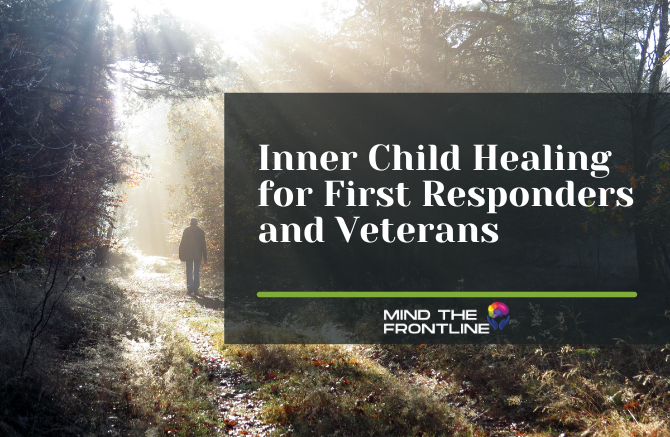
Inner child healing offers transformative benefits for first responders and veterans, helping them navigate the emotional scars of their demanding...
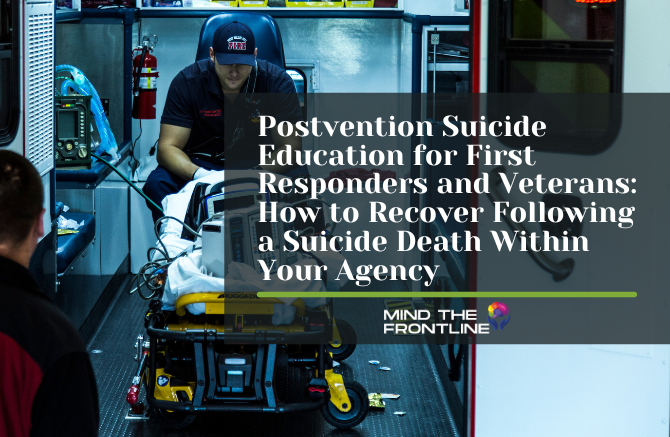
Navigating the aftermath of a suicide within an agency is a complex and emotionally taxing process requiring specialized education and support. This...
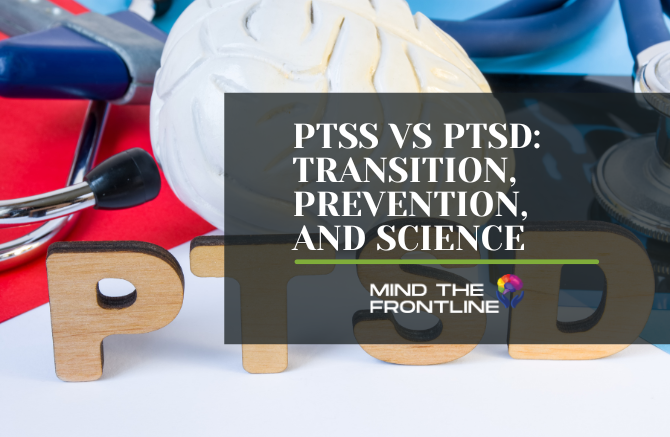
Explore the differences between PTSS and PTSD, ways to prevent the transition, and the scientific aspects behind these conditions.